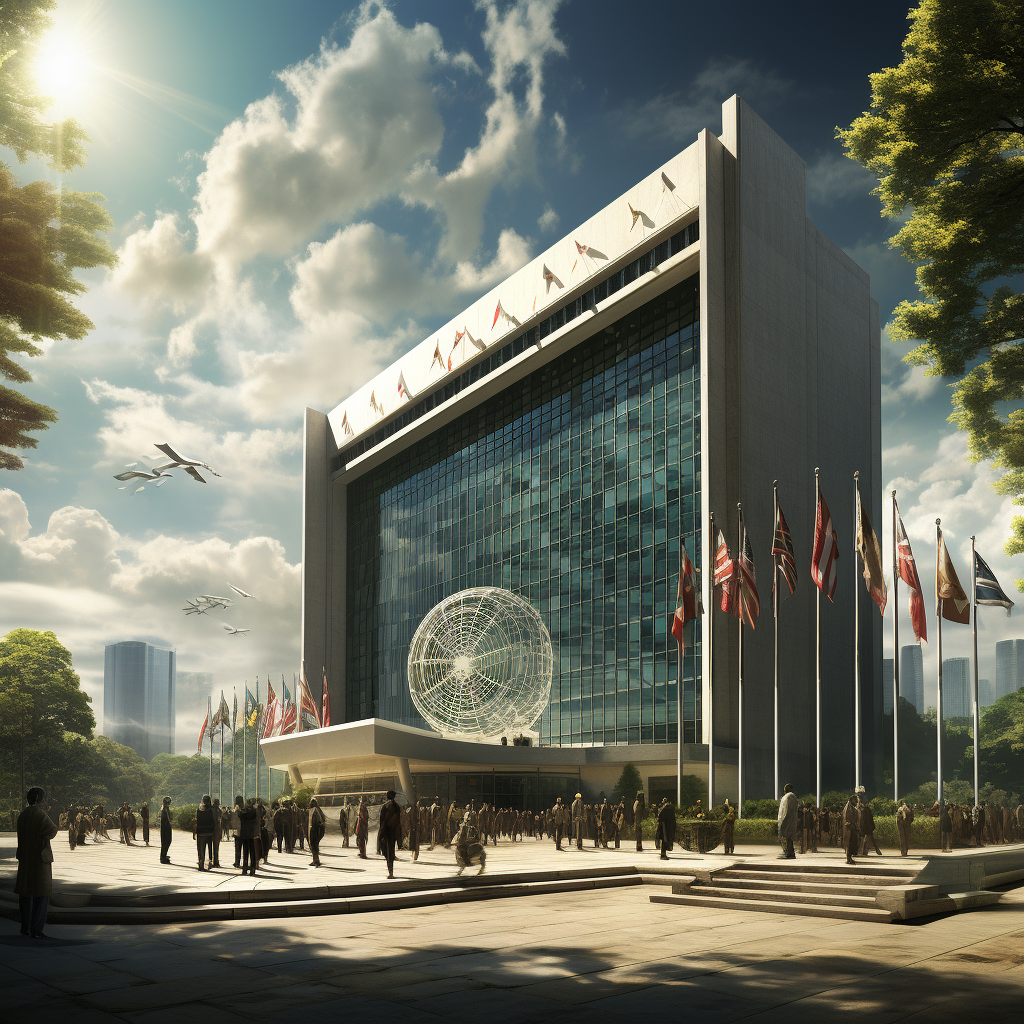
Exploring United Nations Member Nations: A Global Mosaic
The United Nations (UN) is an extraordinary global organization uniting 193 sovereign nations from around the world. These nations, each with unique histories, cultures, and challenges, come together under the UN umbrella to collaborate on common goals. These goals encompass promoting peace, fostering international cooperation, and addressing global issues. In this comprehensive exploration, we will delve deeper into the diverse member nations of the United Nations, their unique roles, contributions, and the complexities they face within this global coalition.
The United Nations: A Global Platform for Cooperation
The United Nations, established in 1945 following World War II, stands as a testament to humanity’s collective desire to prevent future conflicts and build a more harmonious world. This global coalition serves as a platform where nations can voice their concerns, negotiate treaties, and collaborate on pressing global matters. The UN operates through a range of bodies, including the General Assembly, Security Council, and specialized agencies like UNESCO and WHO. The UN’s multifaceted structure allows for a comprehensive approach to tackling the world’s most pressing challenges.
A Comprehensive List: The 193 Sovereign Nations in the UN
While some might immediately associate the UN with influential nations like the United States, China, or Russia, it’s crucial to recognize that this organization represents the entire spectrum of nations. From the smallest, such as Tuvalu or Nauru, to the largest, like India or Brazil, each nation plays a role in shaping global policies and addressing shared concerns. Understanding the diversity within the UN is vital to appreciating the complexity of international relations and the common mission of global peace and development.
Roles and Contributions of UN Member Nations
Each member nation contributes uniquely to the UN’s operations. Financially, major powers like the United States bear a significant burden, supporting the organization’s budget and various initiatives. Smaller nations often excel in peacekeeping efforts, with their troops helping to stabilize conflict-ridden regions. Additionally, nations participate in specialized UN agencies and programs, such as UNICEF for children’s rights and the UNHCR for refugees. These contributions showcase the diversity of skills and resources within the UN, emphasizing the collective nature of global problem-solving.
Profiles of UN Member Nations: From Afghanistan to Zimbabwe
To truly grasp the significance of the United Nations, we must explore the stories and challenges of its member nations individually. For instance, Afghanistan, marked by decades of conflict, strives for stability and reconstruction in the face of adversity. In contrast, Zimbabwe faces economic hardships and political complexities that require international support. These profiles emphasize the intricate web of issues the UN deals with daily and underscore the importance of cooperation among member nations.
United Nations Membership Criteria: The Path to Joining
Becoming a member of the United Nations is a meticulous process designed to ensure that nations committed to the UN’s principles and goals become part of the global coalition. A nation seeking membership must be recognized as a sovereign state by a majority of existing UN member nations. Once this criterion is met, the aspiring member submits a formal application, which is then reviewed by the UN General Assembly. This rigorous procedure guarantees that the UN remains a cohesive body with shared values and objectives.
Diplomacy and Cooperation: The UN’s Efforts to Unite Nations
Diplomacy lies at the heart of the United Nations’ mission. It provides a peaceful avenue for nations to engage in dialogue, resolve disputes, and negotiate international agreements. Through diplomacy, the UN prevents conflicts from escalating into wars and fosters cooperation in addressing pressing global issues such as climate change, poverty alleviation, and human rights protection. It’s through diplomatic efforts that the world inches closer to achieving lasting peace.
Emerging Challenges: Issues Faced by Nations in the UN
In today’s rapidly changing world, new challenges continually emerge, testing the resolve of the UN and its member nations. Cyber warfare, infectious diseases like the COVID-19 pandemic, and the displacement of refugees are among the modern challenges that require innovative solutions and global cooperation. These issues underscore the ongoing importance of the UN in safeguarding global stability and prosperity.
The United Nations and Peacekeeping: A Global Effort by Member Nations
One of the most recognizable facets of the UN’s work is its peacekeeping missions. Member nations contribute troops, funds, and logistical support to maintain peace in conflict zones worldwide. These missions epitomize the UN’s commitment to conflict resolution and the prevention of violence on a global scale. They serve as a tangible demonstration of how nations within the UN cooperate to ensure the safety and security of vulnerable populations.
United Nations Reforms: Shaping the Future Together
In an ever-evolving world, the United Nations recognizes the need for continuous reform to remain effective and responsive. Member nations actively engage in discussions on improving the organization’s structure, decision-making processes, and overall effectiveness. These reforms are essential to ensure that the UN can adapt to emerging challenges and continue to serve as a beacon of hope for a more peaceful and prosperous world.
The United Nations: Catalyst for Global Progress
As we expand our exploration of the United Nations and its member nations, we come to appreciate the profound impact of this global organization on the world stage. The UN’s ability to bring together nations with diverse backgrounds, interests, and priorities is a testament to diplomacy and cooperation in the pursuit of common goals.
The UN operates on the principle that no single nation can address the complex challenges of the modern world in isolation. It’s through this collective effort that progress is made on a myriad of issues, from human rights and environmental sustainability to humanitarian assistance and conflict resolution.
The Power of Inclusivity
The inclusivity of the United Nations is a powerful force. It gives a voice to even the smallest and most vulnerable nations, allowing them to participate in global decision-making. This inclusivity reflects the UN’s commitment to fairness and equity, ensuring that the benefits of international cooperation are shared by all.
A Beacon of Hope
In a world marked by turmoil and uncertainty, the United Nations stands as a beacon of hope. Its enduring mission to promote peace, cooperation, and development offers a path forward towards a better future for all nations. While challenges persist, the collective resolve of member nations within the UN remains unwavering.
Conclusion: The United Nations – A Mosaic of Global Cooperation
In conclusion, the United Nations is more than just an organization; it is a mosaic of global cooperation, diversity, and resilience. Its member nations, each with their distinct identities and aspirations, come together to create a more peaceful and prosperous world. As we continue to explore the intricate tapestry of nations within the UN, we gain a deeper appreciation for the vital role it plays in shaping the course of human history. Whether a nation is large or small, economically powerful or struggling, it has a place within this global family, working together for the betterment of humanity.
The United Nations is a living testament to the possibilities of diplomacy, cooperation, and unity in addressing the most pressing challenges of our time. It reminds us that, despite our differences, we are all part of a shared global community, and by working together, we can achieve remarkable feats.
Learn More:
United Nations Official Website: The official website of the United Nations provides a wealth of information about the organization’s structure, initiatives, and member nations. It offers access to reports, documents, and news related to the UN’s work.
CIA World Factbook – United Nations: The CIA World Factbook offers profiles of UN member nations, including detailed information about their geography, demographics, government, and economy. It’s a valuable resource for in-depth country-specific data.
Council on Foreign Relations – United Nations: The Council on Foreign Relations provides articles and analyses on various aspects of the United Nations, including its history, current challenges, and reforms. It offers insights from experts in international relations.
